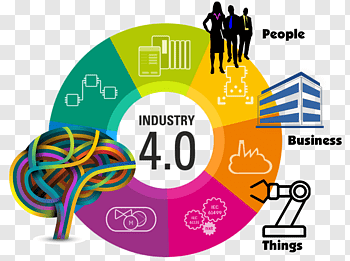You will agree with me when I say IoT is the largest digital megatrend, which bridges both the physical and the Virtual World. The commencement of the first Industrial Revolution brought about a small number of innovations, beginning in the second half of the 18th century. By the 1830s development had been made in important technologies such as Textile, Steam Power, Iron making and invention of machine tools. This brought about opportunities.
The second industrial revolution began in the late 19th century and continued into the early 20th century. Their main drivers were the introduction of electricity and the assembly line in the automotive industry by Henry Ford in 1913. As a result, production became much faster, as each employee concentrated on only one work unit.
The third industrial revolution began in the 1960s and was significantly influenced by the development of semiconductors, mainframe computers (1960s), personal computers (1970s and 1980s) and the Internet (1990s).
The Fourth Industrial Revolution, also known as Industry 4.0, is the era of digitalization as they call it, is an umbrella term that refers to changes happening in the industrial value chain process. All devices, Stimulations, Robots and tools all have sensors that provides data, therefore, Industry 4.0 involve automation and data exchange in the Manufacturing industry.
According to the Boston Consulting Group (bcg.com/en-us/capabilities/operations/embracing-industry-4.0-rediscovering-growth.aspx) there are nine principal technologies that make up Industry 4.0:
• Autonomous Robots
• Simulation
• Horizontal and Vertical System Integration
• The Industrial Internet of Things
• Cyber security
• The Cloud
• Additive Manufacturing
• Data and Analytics
• Augmented Reality.
All this technologies are used in creating a smart factory where machines, systems, and humans communicate with each other so as to coordinate and monitor progress along the assembly line.
The drive to increase productivity and reduce costs in manufacturing environments has led to an exponential increase in the adoption Smart Factory. IoT allows automation like never before, machines now make decisions in split-seconds based on real time data, Industry 4.0 does not only give you smart factories, it offers a more comprehensive, interlinked, and holistic approach to manufacturing.

